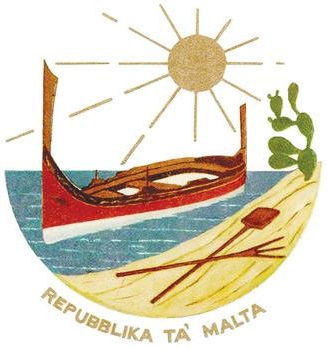The last few decades, the world has seen the most widespread abuse of power ever, the use of technological systems that empower authorities and compel the rest to compliance.
I group in three categories, the greatest dangers to liberty today:
1. The political manipulation of citizens in ways contrary to their own interests.
2. The pervasive government secrecy to shield its actions from public view.
3. The eradication of freedom and the establishment of ubiquitous state surveillance.
Political manipulation manufactured primarily through the mass media is based on lies and sociopolitical myths conditioned mainly on trust without rational critical judgement.
Still, to make sense of the present malaise we have to go back to the logic of our founding fathers. I identify two figures as the key founding fathers of the Maltese Constitution: George Borg Olivier and Dom Mintoff.
George Borg Olivier held a pivotal role in drafting and promoting the Maltese Constitution. Then, in 1974, Dom Mintoff elevated the aspirations of our nation to that of a republic. Any assessments henceforth, must be built upon understanding the form of government that defines a republic – the baseline level and essence upon which the Maltese State must function.
A Republic is a form of government in which the country is considered a public matter, and not the private concern or property of its rulers.
No matter what others want us to believe, this country is not a direct democracy, in the sense that it is not a nation in which laws and other government decisions are made predominantly by majority vote – but a Republic. The next step is to peruse the supreme law of the Republic of Malta – The Constitution.
Constitutions represent the fundamental principles according to which states are governed. It is also instructive to examine closely two other constitutions so we can peruse the essential commonality that defines the order of importance.
Constitution of the Republic of Malta
Chapter I – The Republic of Malta
1. (1) Malta is a democratic republic founded on work and on respect for the fundamental rights and freedoms of the individual.
Preamble to the Constitution of the United States
We the People of the United States, in Order to form a more perfect Union, establish Justice, insure Domestic Tranquility, Provide for the Common Defence, Promote the General Welfare, and Secure the Blessings of Liberty to Ourselves and our Posterity, do Ordain and Establish this Constitution for the United States of America.
Preamble to the Constitution of the French Republic
The National Assembly, wishing to establish the French Constitution upon the principles it has just recognised and declared, abolishes irrevocably the institutions which were injurious to liberty and equality of rights.
The first observation is that Malta has its foundation on two principles – work and the respect for the fundamental rights and freedoms of the individual.
Thereupon, sovereign power is inherent in the individual, and not on the pretensions of control or ideas about majority rule or equality political parties and group may claim. The liberty of the individual is the fundamental principle at the base of any upright social structure by which the three nations expressed their aspirations.
Furthermore, the three documents are very anti-majoritarian, consistently viewing the idea of majority rule as a form of tyranny. According to American economist Walter Edward Williams the US Constitution is replete with anti-majority-rule, undemocratic mechanisms. These include the Electoral College which was intended to balance out the power between heavy-populated areas and scarcely populated areas.
Moreover, “Fifty-one senators can block the wishes of 435 representatives and 49 senators,” and the US Constitution gives the president a veto to thwart the power of all 535 members of Congress. On the other hand two-thirds of both houses of Congress can override the presidents veto.
For the Republic of Malta, the same holds true. Arriving at the specific, the President of Malta is not appointed by majority vote; has the power to forbid (veto) or reject proposals (bills and legislation) for new laws, even when they have passed through the various stages and become acts of parliament (legislature); and most important of all, takes an oath to “preserve, protect and defend the Constitution of Malta”.
Constitution of the Republic of Malta
Mode of exercising legislative powers. Amended by: LVIII.1974.27.
72. (1) The power of Parliament to make laws shall be exercised by bills passed by the House of Representatives and assented to by the President.
The Times columnist Michela Spiteri thinks she can in any way stop people comparing the operations of the Labour Government to a Mafia State.
As a consequence of her reprisal against the freedom and liberty of the individual, it must be said that Malta has gone beyond the confines of any organised crime syndicate (mafia, cartel, whatever description you wish to give it), and is today an Oppressive Surveillance State that is reaching out towards a land Stalin could only dream of.
Today, Malta has become the political equivalent of one of those monstered animals with three heads and five testicles brilliantly depicted by Slovenian philosopher Slavoj ˇZizek.
In all of this, President Marie-Louise Coleiro Preca has acted in a manner contrary to her trust as President of the Republic, as the series of political scandals involving the administration of Joseph Muscat continually manifest injury to the people of the Republic of Malta.













